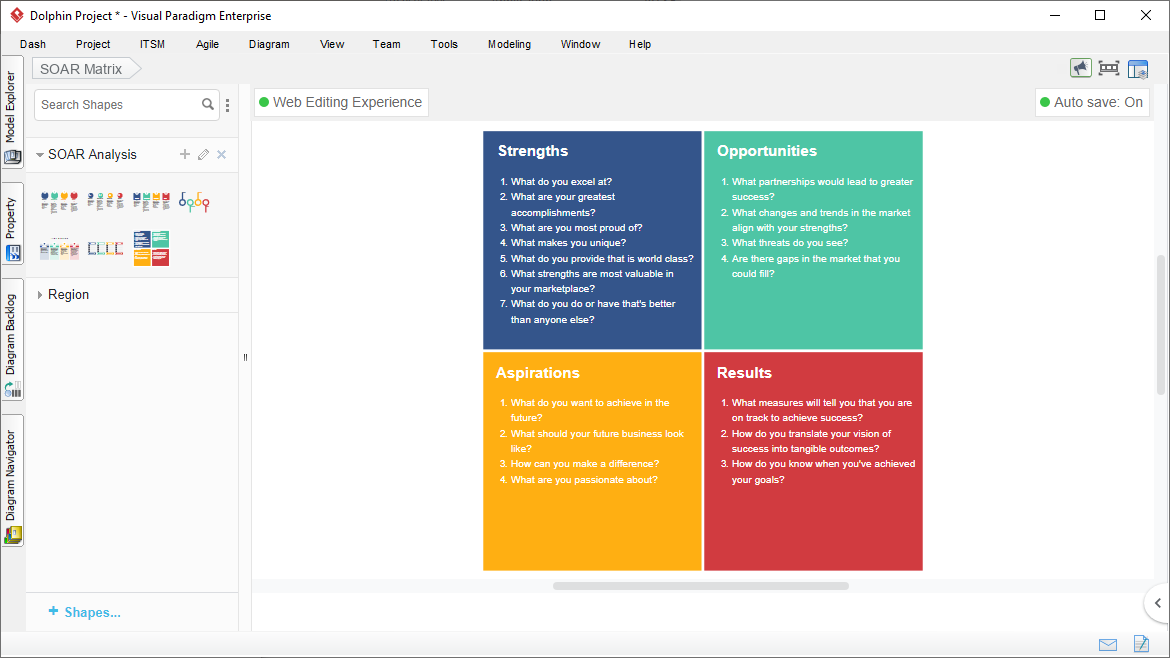A range of SOAR Analysis templates, all easy to edit and customize

SOAR (Strengths, Opportunities, Aspirations and Results) Analysis is a strategic planning approach that looks into the organizations strengths and opportunities in order to develop its strategic goals for the future. Visual Paradigm features an intuitive diagram editor and a rich set SOAR Analysis templates that support your strategic planning and presentation needs.
